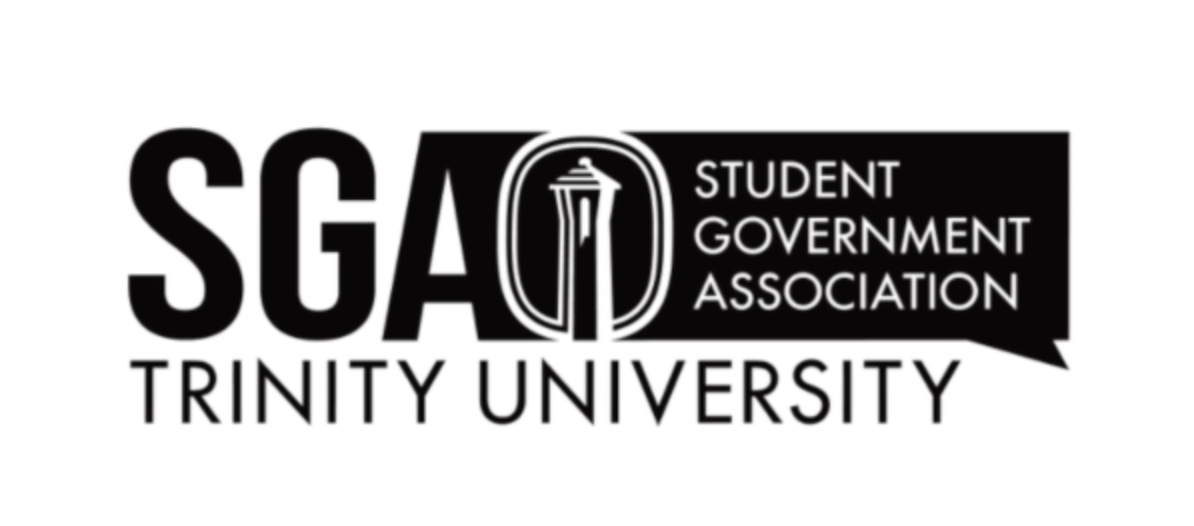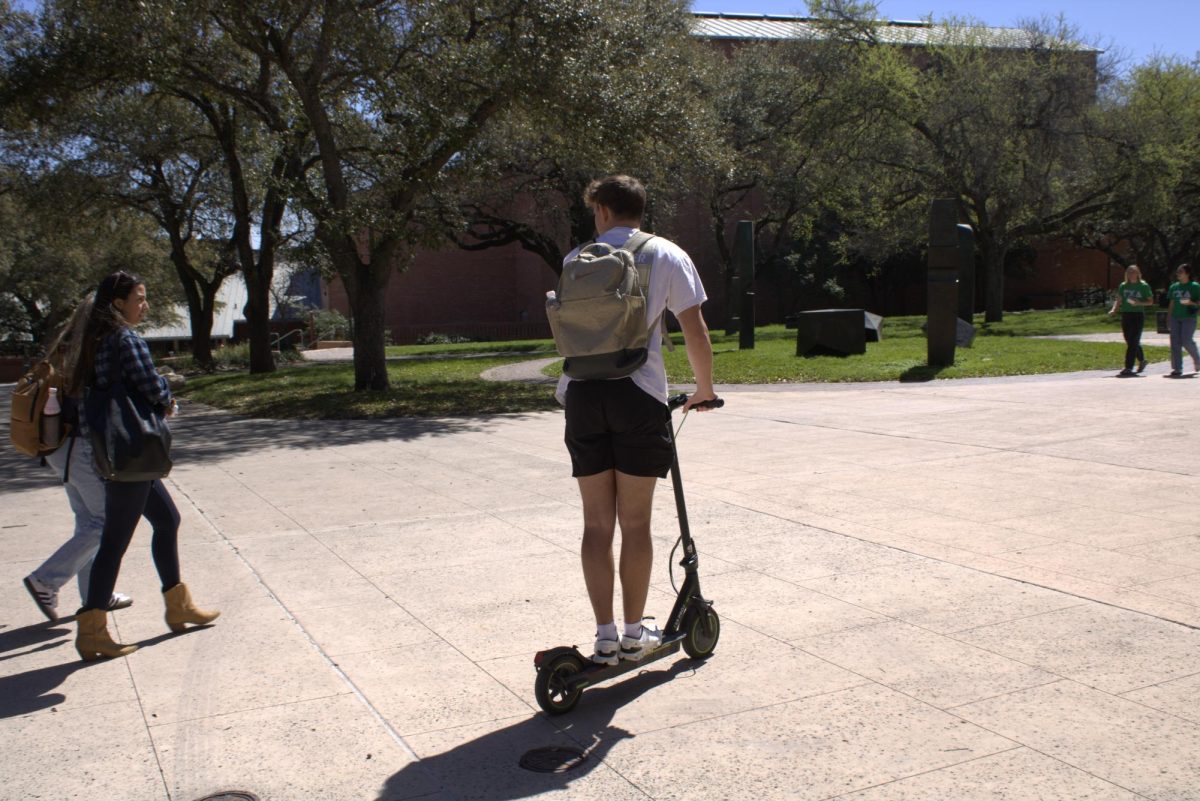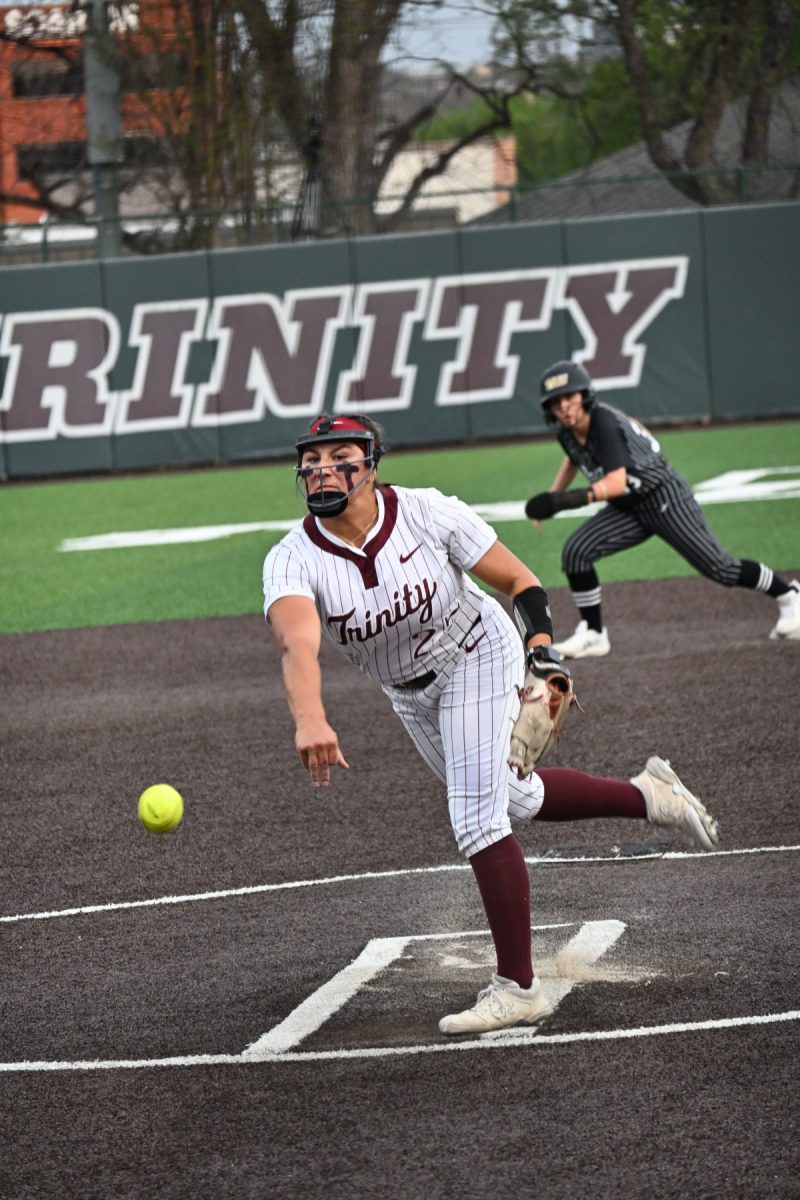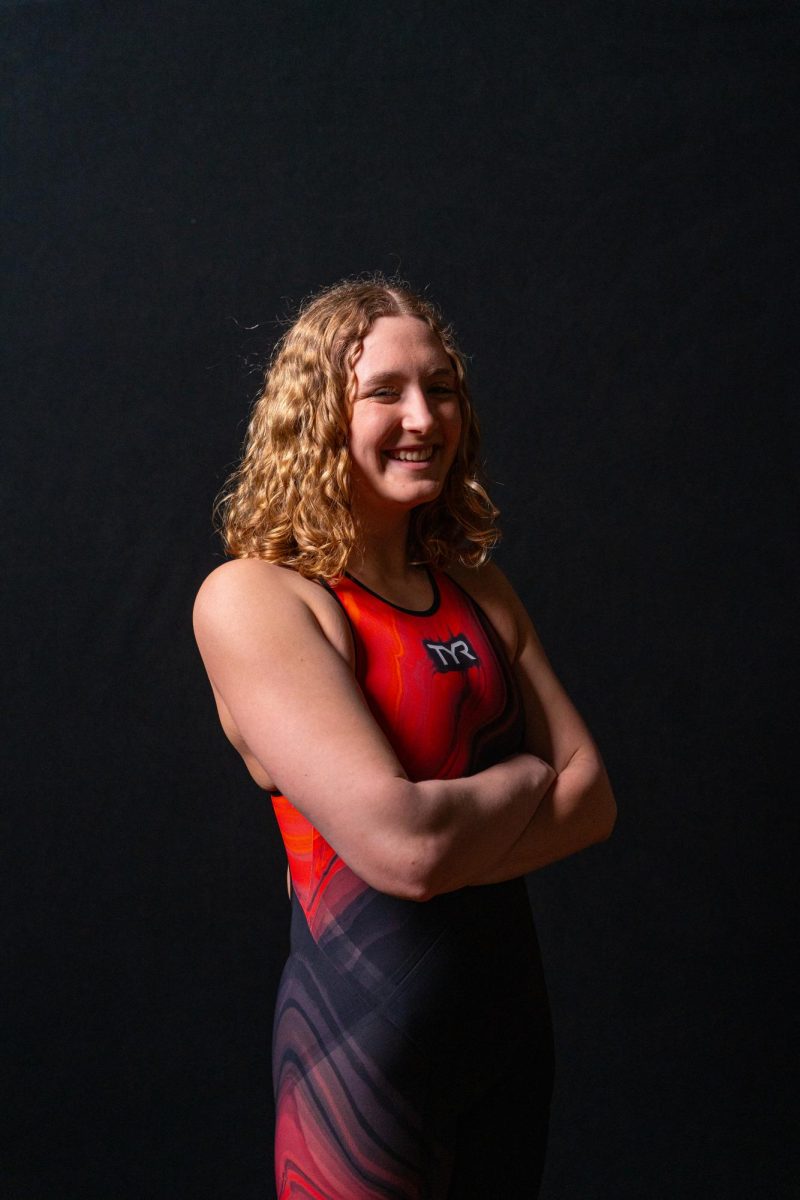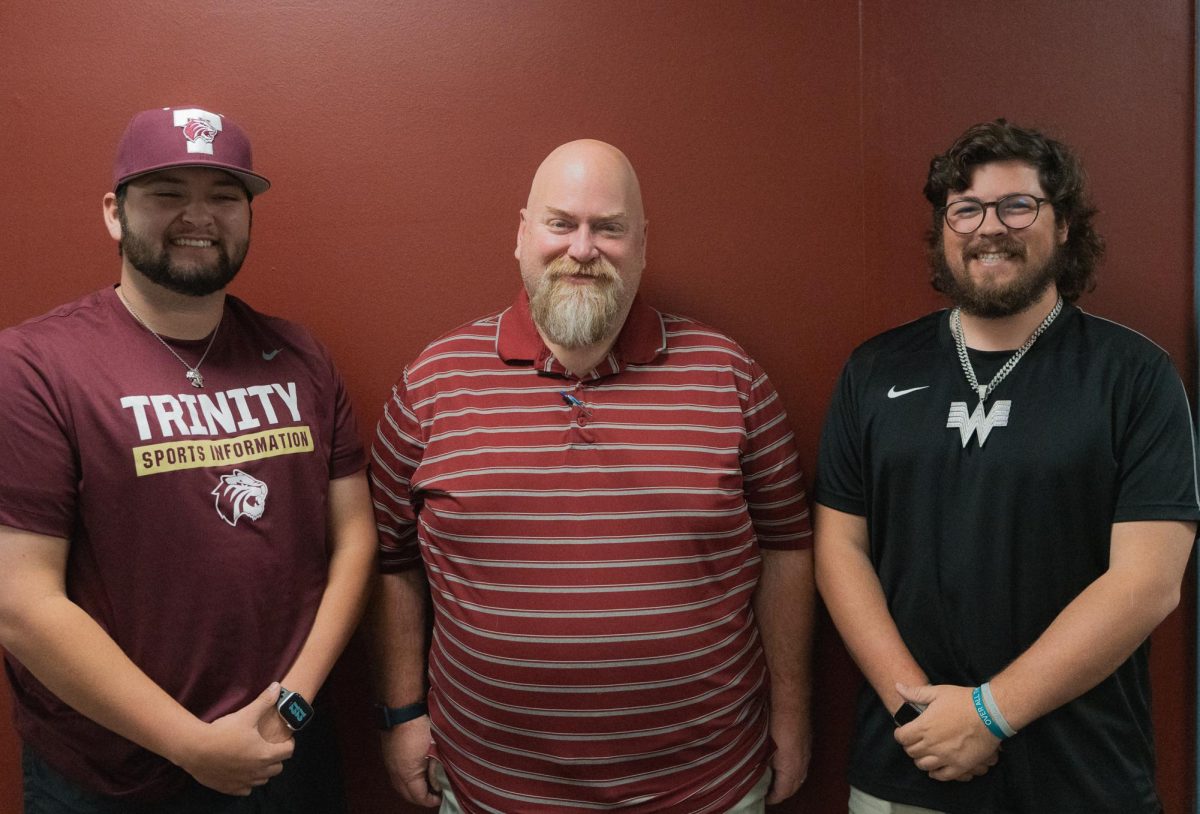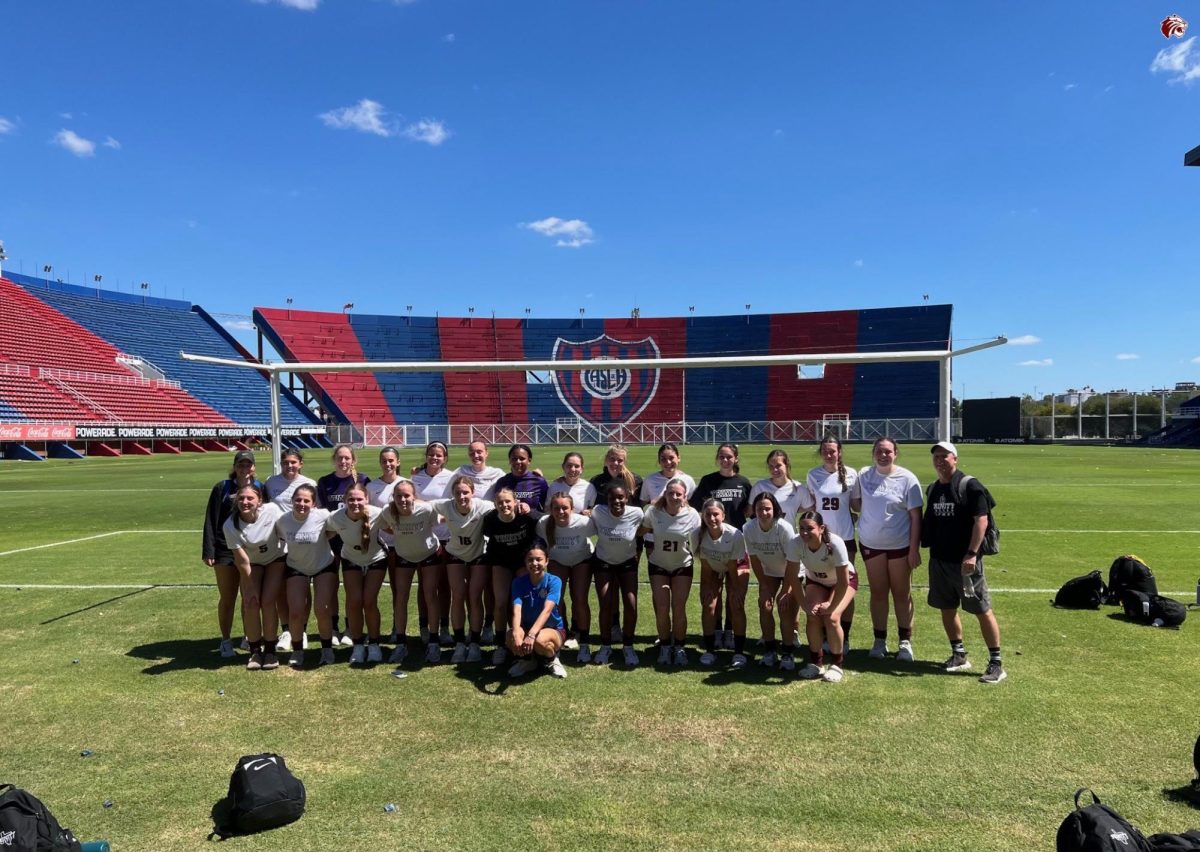Solid academics balanced with the opportunity to play high-caliber athletics is a winning combination for 30 percent of Trinity students. Coupled with the work the admissions and coaching staff do, this makes the opportunity to be a Trinity Tiger a reality.
“Upon surveying the students last year, we found one of the top five reasons students came here was for athletics,” said President Dennis Ahlburg. “Our coaches do a great job of recruiting athletes here.”
Trinity, as a Division III university, is not allowed to give out scholarships to athletes based on their athletic ability. Instead they are eligible for merit based scholarships and financial aid.
“Our merit-based scholarships and awarding of need-based aid is what we are going out with as a package, and so far we have been keeping pace with what other schools of our caliber give out,” said head volleyball coach and associate athletic director, Julie Jenkins. “The university has done a good job of gradually increasing merit-based scholarships over the years.”
Even though students can receive other forms of scholarships, there are other challenges coaches and admissions people face when recruiting.
Many students are not able to meet the academic requirements of the school. The ones that are, are often sought after by other Division III schools as well.
“Finding the combination of athletic and academic skill is a hurdle that most DIII schools have to go through. When we find those kids, everyone wants them because it is a fairly small pool,” said Jeremy Boyce, 03′ alumnus and Coordinator for Athletic Recruitment & Success.
Once this happens, the coaches and admissions staff do their best to set Trinity apart from similar DIII schools the athletes are being recruited by.
“We at admissions make the caliber of our academics a very strong point. A student can come to Trinity, get a great education and compete at a very high level in their sport,” Boyce said. “Trinity offers a lot of freedom to students to get out and do what they are passionate about.”
A senior midfielder from New Mexico, Darren McAfee, was recruited by several schools spanning across all three of the divisions, but ultimately chose Trinity because of the combination of school and soccer he would receive.
“Attending a school that could not only be successful in soccer, but had a strong engineering program, was important to me. Trinity had the unique situation of both, so it was the best fit for me,” McAfee said. “They did a great job of selling how much they wanted me as a student and a player.”
Coaches are also given the opportunity to rank incoming recruits on how much they want them in the program.
“Franchise players, the ones that will make an immediate impact on the program, receive the highest ranking. This just means we at admissions take an in-depth look into them,” Boyce said. “It does not mean they automatically receive admissions-they have to go through the same process as everyone else. This enables us to speed up the process, though, because these are usually the players being recruited by other schools.
Other designations within this recruiting system include “blue chip” and “varsity,” which are the athletes that won’t necessarily make an impact on the team immediately but will have a long-term impact. This system is not exclusive to the athletic department, though; every extracurricular activity, such as theater or choir, is also allowed to rank prospective students to speed up the process.
However, the ranking process does not have a large impact on the overall recruiting process. The process is made easier for coaches when Trinity is already on the radar of prospective athletes.
“We are lucky with the reputation we have. Trinity often comes up in potential universities for athletes that are good players and have high academic goals,” head women’s basketball coach and 99′ alumnus Cameron Hill said. “From there, it is up to us to show them the inner workings of our program. We want to show students that they will be very loved here and we want them to love the game.”
Another recent trend that has been helping the recruiting process is the employment of multiple alumni in the coaching staff. There are at least 14 head coaches and assistant coaches in the athletic department. This makes up almost half of the coaching staff.
“Being an alumni of the school gives us coaches an advantage in recruiting because we have an immediate frame of reference about what it takes to be successful here,” Hill said.
Traveling to recruit players can also make a difference on the ability to successfully get a player here.
“We are recruiting players year-round, but during the off-season we usually travel 10 to 11 weekends around Texas and the country,” Jenkins said. “Last year, we went to tournaments in Houston, Dallas, Las Vegas, Denver, Orlando and Southern California. Seven out of 19 players on our team this year are from out of state.”
Although traveling is helpful, it is certainly not necessary. Many international players are recruited every year without the coaching staff of the sport actually visiting them. For example, the men’s soccer team has 18 international players ““ the most out of any sports team at Trinity.
“We’ve developed pipelines, the same as we do for domestic recruiting. Salvador, Brazil and Cali, Colombia, are two examples of places where we’ve established connections that keep sending us talent,” said assistant men’s soccer coach and 09′ alumnus Edward Cartee. “Also, Coach McGinlay has a lot of contacts internationally, whether they be coaches or agents, and those contacts tip us off about players. We discovered both of our Australian players through one of Coach Juan Lamadrid’s contacts.”
With no actual recruiting budget, coaches travel on dollars left over in their general program budgets. Even so, coaches say recruiting goes well for Trinity athletic programs.
“There are no complaints on the recruiting budget. It is well worth it for them and for us to have that money,” Jenkins said.
However, Trinity’s greatest asset in recruiting is the current athletes themselves. The best showcase of what Trinity can do for a prospective scholar-athlete is current Trinity scholar-athletes.
“If a recruit comes on a campus visit, they’re sold, every time. My visit was what sold me on Trinity. Our biggest selling point is our players,” Cartee said. “When a recruit gets to spend time with our players, that recruit always wants to come to this school and join our team. Generally speaking, it’s not hard to sell recruits on coming to Trinity, because here they can get an excellent education and play for a nationally-ranked team, and few, if any, of their other options offer a comparable combination of both elite academics and elite athletics; but if they still need to be persuaded, their visit and their interaction with our players is always the clincher.”

